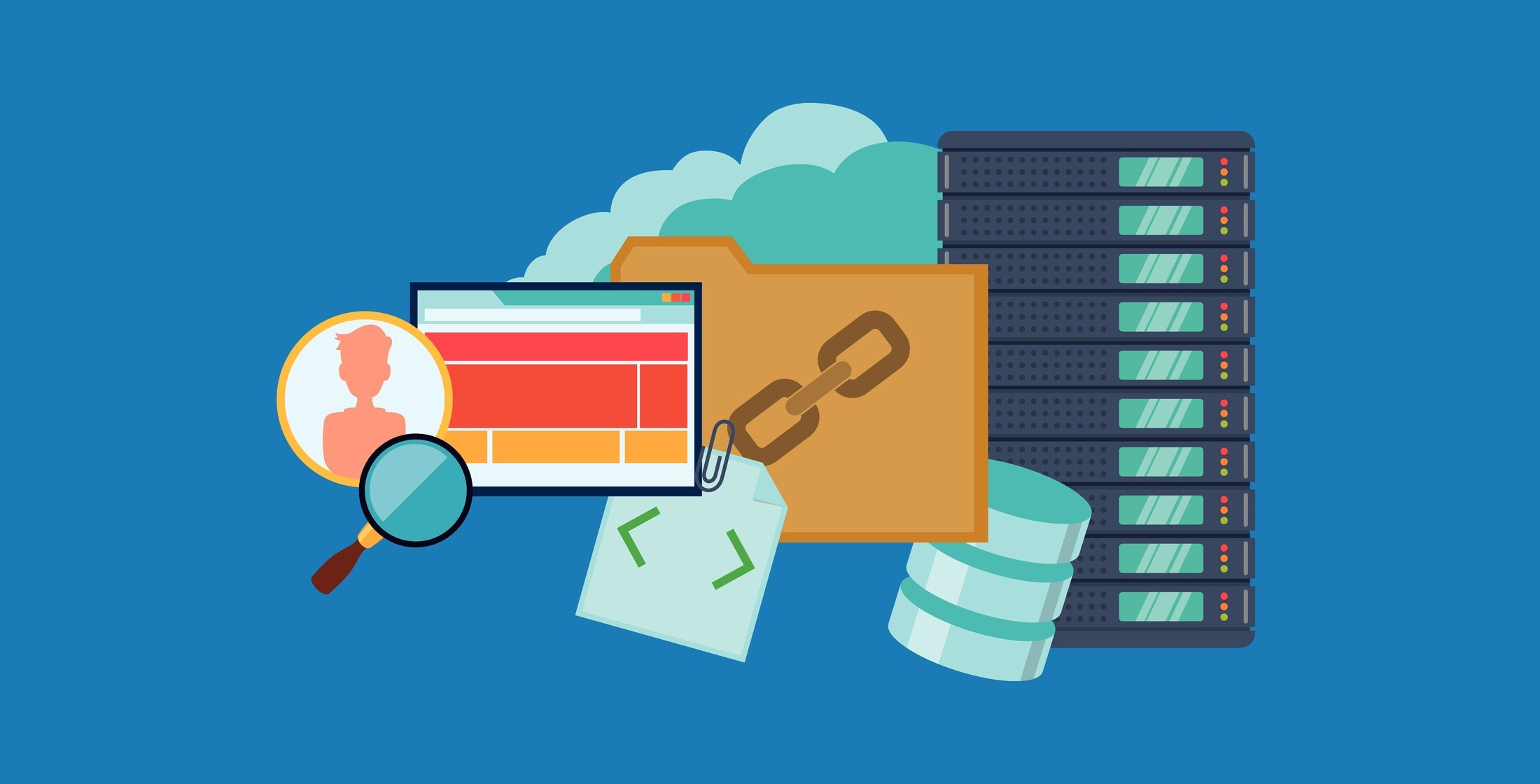Having a strong online presence is crucial for both individuals and businesses, and a key element of this is your web hosting service. It serves as the framework that makes your website accessible to users around the world. The term "Unlimited Web Hosting" often appears attractive in this context, offering unlimited resources and the promise of freedom at a budget-friendly price. However, while it may seem tempting, unlimited web hosting is not without its drawbacks and limitations.
What Does Unlimited Web Hosting Really Mean?
The term "Unlimited Web Hosting" can be quite enticing. Who wouldn't want limitless resources for their website? On paper, this type of hosting offers an unrestricted amount of some or all of the key resources—like disk space, bandwidth, and email accounts—that a website needs to function smoothly. These limitless promises make it seem like you won't have to worry about exceeding any thresholds or incurring additional costs for extra usage.
Common Features Offered
- Unlimited Disk Space: The promise of unlimited storage for your website's files, images, and data.
- Unlimited Bandwidth: No restrictions on the amount of data transfer, meaning theoretically more speed and faster loading times for your website.
- Unlimited Email Accounts: The freedom to create as many email accounts as you'd like associated with your domain.
- Unlimited Domains and Subdomains: The option to host multiple websites under a single hosting account.
- Unlimited Databases: No cap on the number of databases you can create, which can be essential for larger, more complex websites.
Appeal of Unlimited Web Hosting
The allure of unlimited web hosting is undeniable, especially when you consider some of its most appealing attributes.
Affordability
One of the most compelling reasons people opt for unlimited web hosting is its cost-effectiveness. For a flat monthly or yearly fee, you're promised an unrestricted amount of resources. For small business owners or individual bloggers who are budget-conscious, this can seem like an unbeatable offer. The idea of not having to worry about additional costs for extra disk space or bandwidth is certainly enticing.
Convenience
Unlimited web hosting packages aim to be a one-size-fits-all solution. They simplify the decision-making process by eliminating the need to calculate how much disk space or bandwidth your website will require. For those who don't want to delve into the technicalities of web hosting, this makes for a convenient option.
Attractive for Beginners
For those new to website management, unlimited web hosting appears as a hassle-free entry point. With no apparent limitations on resources, beginners may feel they are getting the best bang for their buck. The sense of getting 'unlimited' resources for a single price can provide peace of mind, allowing them to focus more on building their website rather than managing hosting resources.
However, it's crucial to be aware that the term "unlimited" often comes with conditions, limitations, and fine print that aren't immediately apparent.
Hidden Costs of Unlimited Web Hosting
While unlimited web hosting may seem like a dream come true, it's essential to look beyond the marketing jargon to understand what you're truly getting. Unfortunately, there are often hidden costs and unexpected limitations that could impact your website's performance.
Performance Issues
The promise of unlimited resources often comes at the expense of performance. Since many unlimited hosting plans are shared, you'll be competing for resources with other websites hosted on the same server. During peak times or high-traffic events, you may notice your website's speed and responsiveness take a hit. Slow load times can be a major turnoff for visitors, potentially driving them away and negatively affecting your search engine rankings.
Hidden Fees and Limitations
"Unlimited" rarely means without any limits. If you dig deep into the service agreements, you'll often find clauses stating that these unlimited resources are subject to "fair usage policies" or "normal operation" limits. For example, you may have unlimited disk space, but if your usage impacts the server's performance, your hosting provider may either throttle your website's resources or ask you to upgrade to a more robust plan, which comes with a higher fee.
Additionally, while you may be offered "unlimited" email accounts or databases, these too might come with limitations on size or usage. Exceeding these undisclosed limits could result in additional charges or even temporary suspension of your service.
In summary, while the affordability and convenience of unlimited web hosting can be appealing, it's crucial to understand the true cost. Performance compromises and hidden limitations could turn what seemed like a good deal into an expensive mistake.
Why Unlimited Web Hosting May Not Be Ideal for Businesses
For businesses looking to establish a strong online presence, opting for an unlimited web hosting plan may initially appear as a sensible choice. However, this option may not be ideal for various reasons, particularly for enterprises that need more control, security, and customization.
Lack of Customization
Businesses often have specific needs that go beyond what a generic hosting package can offer. Whether it's specialized software, unique server configurations, or specific data backup requirements, unlimited web hosting plans often fall short. These plans typically come with a predetermined set of features and settings that may not align well with your business objectives, limiting your ability to fine-tune the hosting environment according to your needs.
Shared Resources
The "unlimited" aspect of these hosting plans usually entails sharing server resources with multiple other websites. This can pose a problem, particularly during high-traffic periods, as one website consuming a large number of resources can slow down all the other websites hosted on the same server. For businesses, a sluggish website can result in a loss of sales, lower customer satisfaction, and a tarnished brand reputation.
Security Concerns
The shared nature of unlimited web hosting can also present security risks. If one website on the server gets compromised, there's a possibility that the issue could affect other sites hosted on the same server, including yours. While hosting companies implement a variety of security measures to minimize this risk, the shared environment inherently offers less isolation, making your site more vulnerable to potential security threats.
While unlimited web hosting may be a tempting option due to its apparent cost-effectiveness and simplicity, businesses should be wary. The limitations in customization, the risks associated with shared resources, and the potential security vulnerabilities often make it a less-than-ideal choice for enterprises looking for robust, scalable, and secure web hosting options.
Real-world Scenarios
Understanding the limitations of unlimited web hosting is best done through real-world examples. These case studies and scenarios demonstrate why this type of hosting may not be the best option for everyone.
Case Study 1: E-commerce Site Slowdown
Imagine an e-commerce business that decided to go with an unlimited web hosting plan to save costs. All seemed well until Black Friday arrived. With a spike in visitors eager to take advantage of holiday deals, the site's performance plummeted due to the shared server resources. As a result, potential customers faced slow load times and even timeouts, leading to abandoned carts and lost sales.
Case Study 2: Hidden Fees Surprise
A local non-profit decided to host their extensive digital archive on an unlimited web hosting plan. A few months in, they found themselves subject to additional fees. Despite the promise of unlimited disk space, they had unknowingly exceeded what the hosting provider deemed "normal usage" and were thus penalized.
Case Study 3: Security Breach
A small marketing agency opted for an unlimited web hosting package to host multiple client websites. All was going smoothly until one of the other websites on the same shared server was compromised. The malware spread to other sites hosted on the server, including those managed by the agency. This led to an urgent, costly clean-up and caused reputational damage to the agency.
Case Study 4: SEO Impact
A blogger who prioritized cost-efficiency chose an unlimited hosting plan but soon noticed a decline in search engine rankings. Slow page load times, attributed to the shared hosting environment, were negatively impacting SEO, making it harder for the blogger to grow their audience and monetize their content.
These real-world scenarios illustrate that the allure of "unlimited" can often be misleading. Whether it's slow website performance, unexpected fees, security vulnerabilities, or SEO setbacks, the limitations of unlimited web hosting plans become clear when applied to specific situations. These are essential considerations, especially for businesses that cannot afford such compromises.
Better Alternatives to Unlimited Web Hosting
If you find that unlimited web hosting doesn't quite meet your needs or if you've experienced some of the limitations firsthand, it may be time to explore better alternatives. Depending on your website's requirements, there are several other hosting options to consider:
Shared Hosting with Capped Resources
If you're just starting out or running a small website, you might not need 'unlimited' resources. Many hosting providers offer shared hosting plans with specified limits on disk space, bandwidth, and other resources. These plans often come with the benefit of more predictable performance and transparent pricing, without the worries of hidden fees or 'fair use' policies.
VPS Hosting
Virtual Private Server (VPS) hosting offers a middle ground between shared and dedicated hosting. With VPS, you're still on a server with other websites, but you have a dedicated portion of the server's resources. This provides better control, improved performance, and the ability to scale your website more efficiently. It's a solid option for medium-sized businesses or high-traffic blogs.
Dedicated Hosting
For websites that require the utmost performance, security, and control, dedicated hosting is the way to go. In this setup, you rent an entire server for your website, providing you with complete control over its configuration and resources. This type of hosting is best suited for large enterprises or websites with extremely high traffic.
Cloud Hosting
Cloud hosting is increasingly popular for its scalability and reliability. Unlike traditional hosting types that rely on a single server, cloud hosting utilizes a network of virtual servers. This setup allows for easy resource scaling, making it a flexible solution for websites with variable traffic patterns. It also provides robust security measures and excellent uptime, making it a sound choice for businesses of all sizes.
Choosing the right hosting plan is a crucial decision that can significantly impact your website's performance, security, and scalability. While unlimited web hosting might seem like an appealing choice due to its affordability and the allure of 'unlimited' resources, it often comes with hidden costs and limitations.
From performance issues and unexpected fees to security vulnerabilities, the downsides are numerous. For those looking for more tailored solutions, several alternatives like shared hosting with capped resources, VPS hosting, dedicated hosting, and cloud hosting offer a range of benefits, from improved performance and security to better control and scalability.
When it comes to web hosting, the adage "you get what you pay for" often holds true. Opting for a more suitable hosting plan over an 'unlimited' one could save you from potential pitfalls and provide a more solid foundation for your online endeavors.




